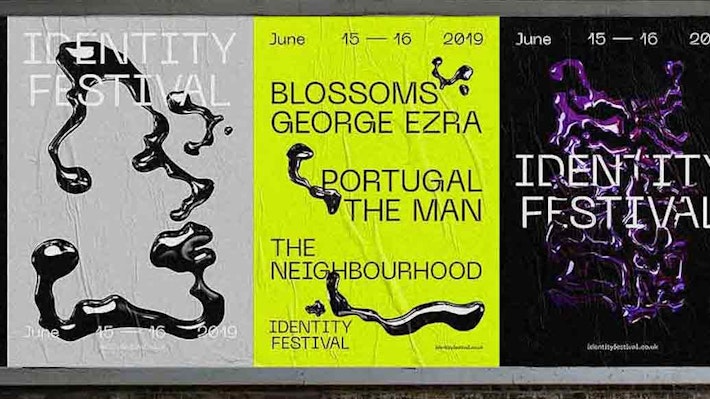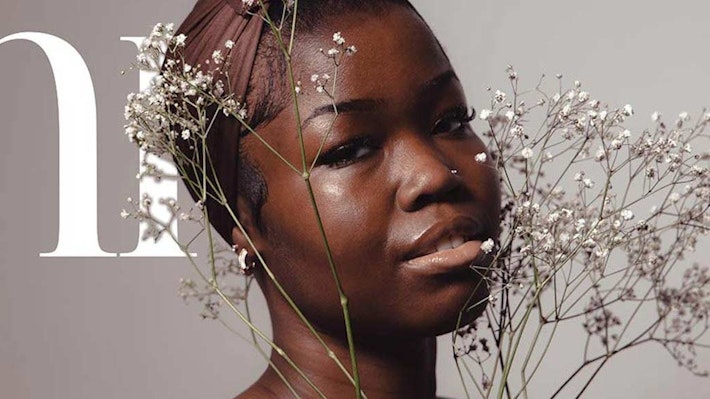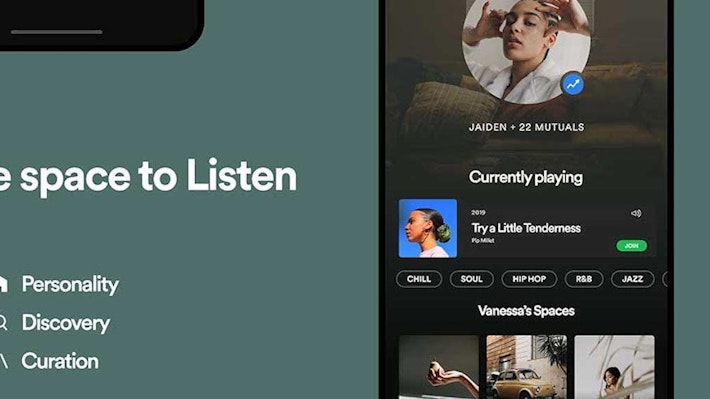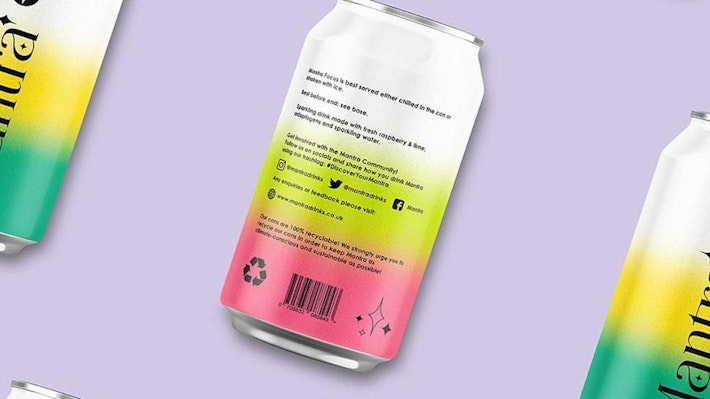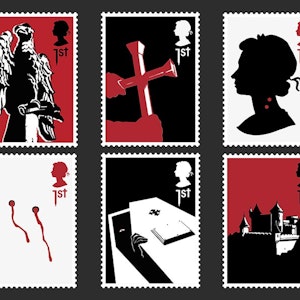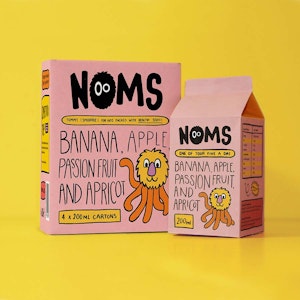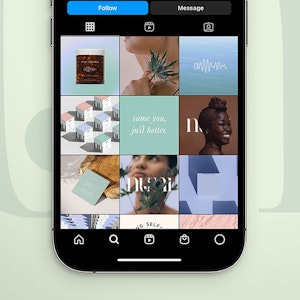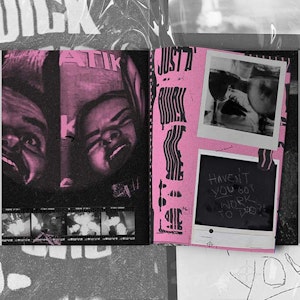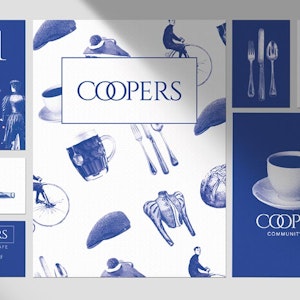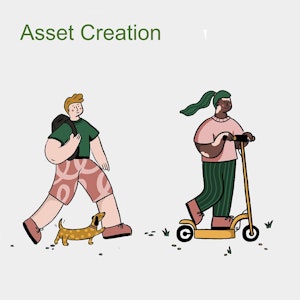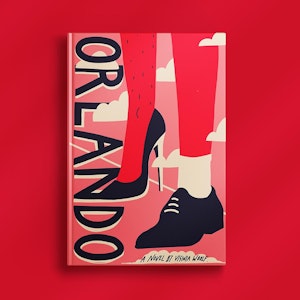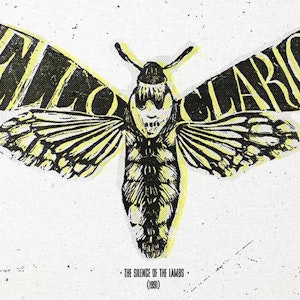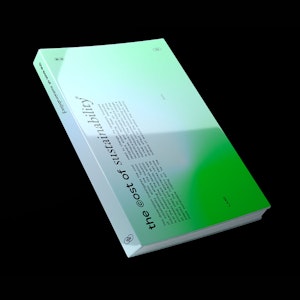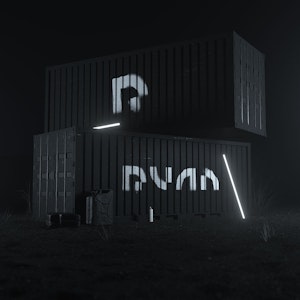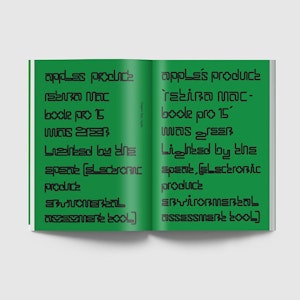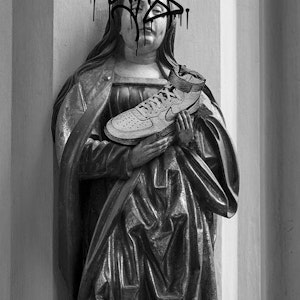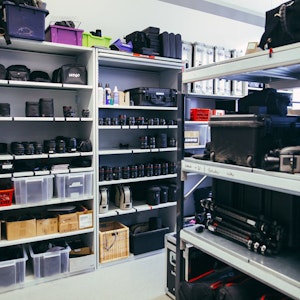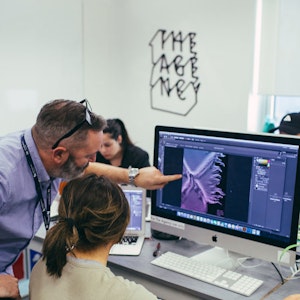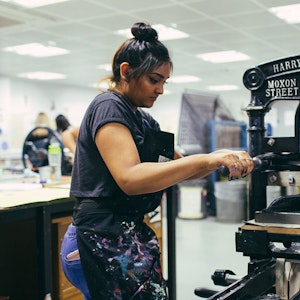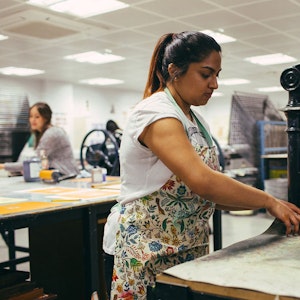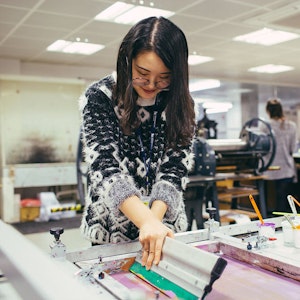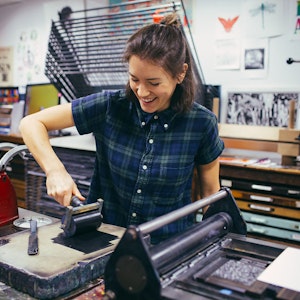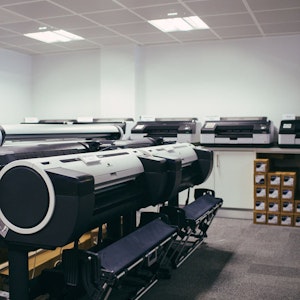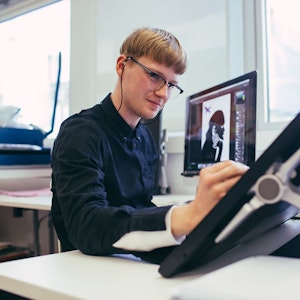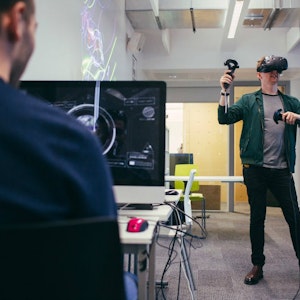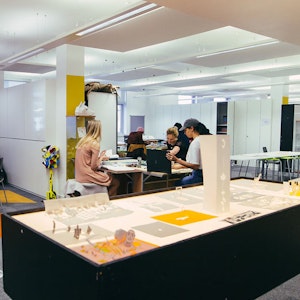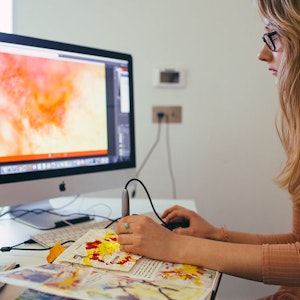Graphic Design with a Foundation Year - BA (Hons)
Currently viewing course to start in 2024/25 Entry.
This four-year degree course (incorporating a foundation year) has been specifically designed to allow you to undertake an additional year of study which will build stronger creative footings to ensure successful progression through their chosen degree course....
- Level Foundation
- Study mode Full Time
- Location City Centre
- Award BA (Hons)
- Start date September 2024
- Fees View course fees
- School School of Visual Communication
- Faculty Faculty of Arts, Design and Media
This course is:
Open to International Students
Overview
The Foundation Year
This four-year degree course (incorporating a foundation year) has been specifically designed to allow you to undertake an additional year of study which will build stronger creative footings to ensure successful progression through their chosen degree course.
Working in a lively and energetic environment, you will be given the freedom to expand your knowledge of practical skills, creative exploration and conceptual development, underpinned by broad critical understanding, academic writing and emerging theoretical principles.
There will be a range of opportunities to work on collaborative and individual projects aimed to develop employability partnerships and to identify the role of developing practitioner. BA teaching staff from across both schools will work closely with you throughout the course to prepare you for progression.
After successful completion of the foundation year, you will have the flexibility to switch (should you wish to change direction) onto a number of related undergraduate degree programmes within Birmingham School of Art or the School of Visual Communication.
BA (Hons) Graphic Design
BA Graphic Design here at BCU is an exciting, engaging, and stimulating course that will equip you with the skills, knowledge, and confidence needed to enter the creative industries.
Our team of experienced and knowledgeable staff will support you on your journey, helping you to bring your creative ideas to life. You’ll develop a variety of design approaches and creative problem-solving techniques, giving you the resilience to succeed in your chosen career path.
As designers, we play an important role in society, and we have the ability to make meaningful change to our world. You will be encouraged to develop a critical eye through briefs that challenge you to go beyond the surface, providing sustainable & culturally-conscious solutions to real-world issues.
This four-year degree course (incorporating a foundation year) has been specifically designed to allow you to undertake an additional year of study which will build stronger creative footings to ensure successful progression through their chosen degree course.
Working in a lively and energetic environment, you will be given the freedom to expand your knowledge of practical skills, creative exploration and conceptual development, underpinned by broad critical understanding, academic writing and emerging theoretical principles.
What's covered in this course?
Our BA (Hons) Graphic Design course will enable you to stand out through your imaginative thinking, passion and commitment to new ideas and international perspectives. You will study a course that will enhance your design skills and challenge your creative thinking, helping you identify the latest directions in design communication on a world stage. We aim to attract independent learners who are creative, imaginative, playful, full of passion and aware of the power they possess to facilitate change, inform opinion and make their mark in industry. Many graduates have gone on to become leaders in their field of specialism and they often return to the University to share this knowledge.
During your time with us, you will develop the practical and intellectual skills required to succeed in a dynamic and ever-changing environment. Our modules are designed to provide you with exciting and engaging learning experiences which will prepare you for your onward journey. Our first year of study focuses on creative play and risk-taking, along with building up core skills and an understanding of design principles and areas of practice. In your second year, you will get the chance to work on live briefs and to gain real-world industry experience, along with advancing your creative and technical skills to a higher level. Our final year is all about developing autonomy within your practice, cultivating a deeper approach to critical thinking and readying yourself to enter the world of creative work.
On the course you’ll get the chance to explore a wide range of areas of practice within graphic design, including branding, packaging, motion design, editorial, typography, UX/UI, art direction, and advertising, as well as delving into emerging technologies such as VR/AR and 3D rendering. Rather than specialising in just one of these areas of practice, we encourage our students to adopt a multi-disciplinary approach, making them desirable to employers and giving them the adaptability, they need to flourish in their creative futures. Collaboration is not only facilitated but actively encouraged on our course, and you’ll have the chance to work with students from other disciplines including illustration, photography, digital marketing and more.
You will immerse yourself in our vibrant studio culture and creative community, based at our City Centre Campus, where you will find traditional and digital print-making facilities, photographic studios, 3D printing, Adobe software training and large format print facilities to enhance your design work. You will also have the opportunity to study abroad for part of the course, or to go on trips to destinations such as New York, Berlin or Paris.
One of our main focuses is employability, and all students who study with us will receive targeted support with professional skills and will leave with an industry-ready portfolio. The course has excellent links to industry, both here in the West Midlands, and nationally too, with opportunities to get involved with live briefs and placements from some of the top design agencies in the country. Previous students have worked on live projects with Turner Duckworth, Superunion, Conran Design, Design Bridge, Man Vs Machine, Studio BLUP, Moonpig, Bulletproof, The Times and The Pratt Institute (New York). We are also fortunate to have great links with Birmingham Design Festival, an event which provides access to an inspiring line-up of internationally renowned designers and creatives. Many of our students have volunteered at the festival, building up their industry networks and confidence.
Your tutors are enthusiastic about their areas of practice, which fosters an invaluable knowledge transfer within the course. We have exceptional levels of external engagement, with visiting lectures given by nationally and internationally-recognised practitioners such as David Carson, Jonathan Barnbrook, Neville Brody, Morag Myerscough, Jim Sutherland, Adult Art Club, Gail Anderson, Adrian Shaughnessy, Becky Smith and Patrick Thomas. As well as having numerous links with industry, you will engage in workshops, seminars, masterclasses, careers advice, portfolio reviews, mentorships and placements.
The learning environment we are in has really helped me to develop my creative thinking. We’re able to collaborate with students across different courses which will be a useful skill when going into the world of work, as the majority of creative jobs involve working in a team and collaborating across different areas.
Josh Johnson
Why Choose Us?
- Your Foundation Year gives you the chance to explore Graphic Design, Illustration, Photography, Fine Art and Art and Design. You will have the flexibility to switch (should you wish to change direction) onto a number of related undergraduate degree programmes within Birmingham School of Art or the School of Visual Communication.
- The School of Visual Communication prides itself on a long-established national and international reputation. It consists of a range of courses that celebrate innovation and allow you to realise your creative ambitions.
- Live project partnerships include NHS, Moonpig, Beehive, Studio Bonito, McCann Erickson, The Times Newspaper Group, Chapter, One Black Bear, Cogent, Leo Burnett London and more.
- Graphic Design has developed a series of professional public-facing lecture programmes entitled ‘Type Talks’. Design luminaries are invited to debate current design issues with eminent practitioners, such as Neville Brody, Jonathan Barnbrook and Adrian Shaughnessy, presenting their work to students and staff.
- This course has exciting trips to provide stimuli for your creative briefs. Cultural trips are planned for London, Berlin and New York, and these excursions will include visits to exhibitions, museums and studios visits.
- Our end-of-year awards are sponsored and presented by high-profile names, with most award winners offered placements which have led to permanent employment.
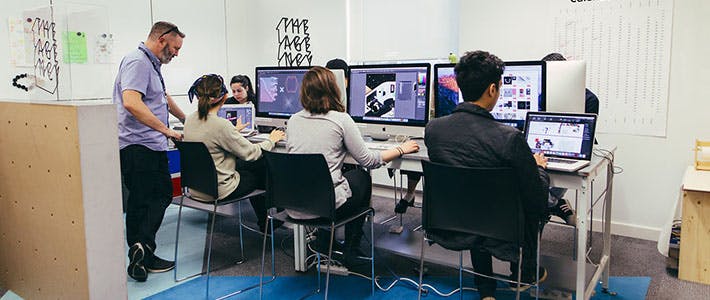
Similar Courses
- Graphic Design - BA (Hons)
- Photography with a Foundation Year - BA (Hons)
- Illustration with a Foundation Year - BA (Hons)
- Design for Performance: Theatre, Film and Live Events with a Foundation Year - BA (Hons)
- Art and Design with a Foundation Year - BA (Hons)
- Fine Art with a Foundation Year - BA (Hons)
Open Days
Join us for an on-campus Open Day where you'll be able to meet us in person. Booking for the next event isn’t open yet. Register your interest below and we’ll email you as soon as booking goes live.
Next Open Day: 29 June 2024
Entry Requirements
These entry requirements apply for entry in 2024/25.
All required qualifications/grades must have been achieved and evidenced at the earliest opportunity after accepting an offer to help confirm admission and allow for on-time enrolment. This can also include other requirements, like a fee status form and relevant documents. Applicants can track their application and outstanding information requests through their BCU mySRS account.
80 UCAS tariff points
If you have a qualification that is not listed, please contact us.
Fees & How to Apply
UK students
Annual and modular tuition fees shown are applicable to the first year of study. The University reserves the right to increase fees for subsequent years of study in line with increases in inflation (capped at 5%) or to reflect changes in Government funding policies or changes agreed by Parliament. View fees for continuing students.
Award: BA (Hons)
Starting: Sep 2024
- Mode
- Duration
- Fees
- Full Time
- 4 years
- £9,250 in 2024/25
- Apply via UCAS
International students
Annual and modular tuition fees shown are applicable to the first year of study. The University reserves the right to increase fees for subsequent years of study in line with increases in inflation (capped at 5%) or to reflect changes in Government funding policies or changes agreed by Parliament. View fees for continuing students.
Award: BA (Hons)
Starting: Sep 2024
- Mode
- Duration
- Fees
- Full Time
- 4 years
- £16,085 in 2024/25
Guidance for UK students
UK students applying for most undergraduate degree courses in the UK will need to apply through UCAS.
The Universities and Colleges Admissions Service (UCAS) is a UK organisation responsible for managing applications to university and college.
Applying through UCAS
- Register with UCAS
- Login to UCAS and complete your details
- Select your course and write a personal statement
- Get a reference
- Pay your application fee and submit your application
You are not required to submit a portfolio for this course.
Course in Depth
Foundation year
Throughout the year you will be challenged with projects that question your current creative experiences and explore a breadth of experimentation to broaden your technical and critical understanding.
You will be encouraged to analyse methods and materials appropriate for creative development and to question your position in relation to historical, contemporary and future world scenarios. Both practical and written research tasks will be supported by one to one tutorials and small discussion groups to help you constructively build academic and social confidence.
The two first semester modules will form the building blocks for future work and will explore core principles of creative practice focussing on, the development of technical confidence, research, study skills and productivity.
The two final semester modules will give you greater autonomy, encourage positive integration between research and practice, challenging decision making and technical competency. This semester is designed to empower you with independent learning skills appropriate for your future BA studies.
In order to progress onto your BA Programme, you must successfully pass all four core modules (totalling 120 credits).
This module explores the term ‘practice’ as the process of making, developing and recording information. We will work with you to explore the development of your work based on a set project, looking at a number of documentation strategies while experimenting with a broad range of materials. You will have the opportunity to meet artists and practitioners through local gallery visits and in studio activities and will learn to analyse your work through tutorials and small group discussions.
Artists work in a globally influenced, culturally diverse, and technologically advancing world. Their art is a dynamic combination of materials, methods, concepts, and subjects that challenge traditional boundaries and defy easy definition.
This module will look at experimental approaches to drawing to identify radical new solutions from the perspective of the contemporary world we live in.
During this module you will meet lecturers, researchers and partners from across BCU, the city and further afield to open your understanding of practiced based creative work. Through lectures and workshops, you will be introduced to the versatility of subject areas in terms of ideas, development, research, materials, techniques and contexts.
Creative realisation is not just about the practice of producing creative responses, it is about identifying the factors that generate creative thinking and facilitating the process.
For this module you will draw on your own creative strategies to facilitate the development of a project that is appropriate for progression onto your chosen BA (Hons) course.
First Year
Your first year of study will introduce you to the basic skills and critical framework within Graphic Design. You will be taught through a series of modules, which provide you with the knowledge to further explore this ever-expanding discipline.
You will develop skills that encompass composition, line, form, narrative, type, imagery, colour, juxtaposition and ideation. From these fundamental principles, you can tailor the remainder of the course to areas of graphic design that are of particular interest to you and your future career aims. Through your modules you will discover the application and use of colour, light, scale, composition, the typographic hierarchy, motion design, UI and interactive design.
Fundamental visual communication issues will be addressed through a series of core lectures and theory seminars. You will also have the opportunity to work with other students from across the School by selecting one of five in house options.
In order to complete this course you must successfully complete all the following CORE modules (totalling 100 credits):
The module ‘Introduction to Graphic Design’ will introduce you to key principles of the discipline, meet academic and technical staff as well as a chance to get to know your fellow students and support your transition into Higher Education. The module will help you develop your knowledge and application of graphic design and also celebrate the wider context and influence of graphics in our lives. It will also be an opportunity to work alongside your peers and to witness visual skills different to your own.
The aim of this module is to emphasize the importance of research through an engagement with historical and contemporary concepts. The project(s) will focus on aspects of typographic communication, advertising and branding, supported by digital platforms and examine how we communicate ideas in new and imaginative ways.
This module will consolidate your practice undertaken in the previous Level 4 projects. Allowing you to develop further your creative process as a designer for performance, it will build on and extend your visual and technical vocabulary, and prepare you for progression to level five.
Throughout L4, a series of Perspectives lectures will be delivered on a regular basis, exploring a wide range of themes appropriate to the analysis and production of visual communication outcomes. These lectures will be coupled with studio-based discussions and/or activities considering discipline-specific research. Discourse follows on from this lecture series, and is a module in which you will produce a written response. The module, and preceding lecture series, will supply you with a broad contextual framework that will underpin your practice.
In order to complete this course you must successfully complete at least 20 credits from the following list of OPTIONAL modules:
The ‘Space and Place’ optional L4 module is designed to equip students with a good understanding of the issues surrounding these two areas. This will be achieved through a conceptual and practical understanding of the narrative process.
The ‘Time and Sequence’ optional L4 module is designed to equip students with a good understanding of the issues surrounding these two areas. This will be achieved through a conceptual and practical understanding of the narrative process.
The ‘Sound and Movement’ optional L4 module is designed to equip students with a good understanding of the issues surrounding these two areas. This will be achieved through a conceptual and practical understanding of the narrative process.
The ‘Text and Image’ optional L4 module is designed to equip students with a good understanding of the issues surrounding these two areas. This will be achieved through a conceptual and practical understanding of the narrative process.
The ‘People and Identity’ optional L4 module is designed to equip students with a good understanding of the issues surrounding these two areas. This will be achieved through a conceptual and practical understanding of the narrative process.
Core modules are guaranteed to run. Optional modules will vary from year to year and the published list is indicative only.
Second Year
Through a combination of theory and experiment, you will learn how to evaluate and apply principles to practice, and will receive opportunities for placement, field study, collaborative and interdisciplinary work. We shall help you to develop your own personal direction, focusing towards the establishment of a specialised and flexible area of practice.
You will learn how to effectively communicate information, arguments and analysis in a variety of forms to specialist and non-specialist audiences. You will enhance your ability to work collaboratively within a working environment, demonstrating knowledge of the main methods of enquiry within the field.
You will develop your critical awareness, individual style and perspective and. You will formulate approaches to solving problems, helping you to further understand the creative role, opportunities and responsibility of the contemporary designer.
In order to complete this course you must successfully complete all the following CORE modules (totalling 100 credits):
In this module students will interpret their own practice in the context of the professional world and consider communicating in a wide range of ways. The focus will be addressing the world of graphic communication in a professional context. Interrogation of studio practice with live briefs and competitions will allow students to expand their knowledge of graphic design, advertising and branding.
This flexible module reflects upon the range of experiences in Level 4 and Level 5 to allow you to identify a specific direction for your own practice and future aspirations. This will then form the initial stage and design of your Level 6 study. In this module, you will explore possible approaches, areas of research and projects that will help define your area of practice.
This module provides an opportunity for you to apply your knowledge and skills to an external, professional brief. The brief will be set by an external client/ agency, in consultation with your supervisor, and it could be a ‘real life’ problem to be solved, or a simulation. It is an opportunity for you to engage in a professional manner with an aspect of your subject area, which contributes to the development of employability skills within the supportive infrastructure of the University. Where appropriate, the project may involve interdisciplinary collaboration with students from other courses. In this way, it reflects the collaborative, flexible nature of employment within the Creative Industries.
In order to complete this course you must successfully complete at least 20 credits from the following list of OPTIONAL modules.
The purpose of this module is to enable you to develop professional attributes and subject skills through experience in the work place, and to critically reflect upon your learning in that context. You will normally be expected to arrange your own placement, with support from academic staff and ADM Careers+.
The module is an opportunity to learn and critically reflect on the skills of collaboration by enabling you to create an interdisciplinary project with students from complementary disciplines, or with academic staff. Collaboration is a vital employability skill within the Creative Industries and this module allows you to develop these skills, making use of University facilities and with the support of academic staff. Within this module framework, several kinds of collaborative opportunities are available. For example, with the approval of your supervisor, you can determine a project based on your own interests; your supervisor may set you a predetermined project to enable you to work with other students in a way that is appropriate to your subject area; or there may be opportunities for you to collaborate with staff on research projects. In all cases, you must apply your subject skills to an interdisciplinary project which will be agreed in advance with your supervisor.
Core modules are guaranteed to run. Optional modules will vary from year to year and the published list is indicative only.
Final Year
During your final year of study you will be supported in establishing the confidence to acknowledge and assert your own distinctive work identity. You will be required to demonstrate within your work a particular view of what constitutes a design proposition.
You will enhance your communication skills, allowing you to develop confidence and understanding, allowing you to capably articulate your views and knowledge to others.
The final year of the programme is designed to help you demonstrate a systematic, extensive and advanced knowledge of contemporary Graphic Communication. You shall work autonomously or collaboratively to a professional standard on self-generated projects, with creativity and imagination.
In order to complete this course you must successfully complete all the following CORE modules (totalling 120 credits):
Having developed and defined your direction of study throughout Level 5, you will now advance your practice as you enter your final year of study. This module will provide you with the opportunity to adopt an increasingly autonomous commitment to your individual direction. At this stage, a focused attitude is essential in developing an informed and contextualised approach to your thinking, ongoing project development, and outcomes.
The key aim of this module is to build upon the work undertaken in previous modules and contextualise this within a written assignment or its equivalent, that frames both your work and identifies possible future direction. You will look to achieve this through the collection and use of both primary and secondary research. This should be used to support a deeper understanding of your discipline and practices, with further analysis used to help shape your on-going development as a successful creative.
The purpose of the module is to enable you to undertake a sustained, in-depth and theoretically informed research project exploring an area that is of personal interest to you. It is important that we can support you appropriately, so you will be guided towards choosing a research topic which is relevant to your discipline and in which your lecturers have expertise. The outcome may take the form of a written dissertation or a practice-based portfolio.
Download course specification
Download now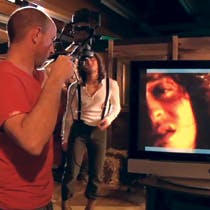

Images: Amritpal Sembhi / Tom Armstrong
Classroom projects and activities
Look book
Students successfully collaborated with photography and fashion staff and students to create a look book. This substantial editorial was professionally designed and printed. The student’s involvement included design, art direction, typographic hierarchy, editing, production and setting up the editorial for print.
Student work
Our final-year students engage with briefs which have social benefits as well as experimentation and commercial outcomes.
The following students work are exemplars of these aspects:
- Richard Jones has an affinity for visual identities and brand strategy, ensuring all aspects are rationalised. Richard’s work exemplifies a broad socially aware design ethic and encompasses work with the RNIB and Winterbourne Press
- Nora Bruno’s passion for creativity and design brought her to the UK about six years ago. Nora enjoys working with ink, paper, typography, calligraphy and hand lettering. Her work represents her passion for working in an experimental way and the use of mixed media such as screen-printing, letterpress and mixing printmaking with digital techniques
- Taylor Lantelli enjoys all kinds of art and design, and would consider herself more of a 'maker' because she loves creating tangible objects. In terms of graphic design, her real passion lies in anything print and editorial. She finds publications fascinating and views every page as a separate piece of artwork.
Trips and visits
While you study the course you will be offered opportunities to go on group excursions both in the UK and abroad. There are usually three overseas trips a year, which we offer both at subject level, as well as School level, to Venice, New York and Berlin.
Locations do alter each year to allow for students to experience a range of cities. We always put on UK study trips to places such as London, Manchester, Oxford and Liverpool. Where possible, UK trips are free or heavily subsidised.
As a Visual Communication student, you’ll be encouraged to take advantage of these trips as we see them as adding extra value to your course and they do offer additional research opportunities.
Whilst in Hong Kong I explored the typography of various regions of the area and was part of the team that delivered workshops such as letterpress to the overseas students. The trip gave me the opportunity to visit a range of galleries and network, enabling me to organise my own show in Hong Kong.
My trip with BCU was one of the most eye opening, educational and enjoyable experiences of my life and I would highly encourage other students to take up any overseas opportunities if they get the chance.
Liam Blunden
How Do You Draw in 3D?
Watch one of our first year Visual Communication students learn to draw and design in a 3D space. See how Virtual Reality can become a source of creative inspiration.
Hear from our students
Lauren explains more about her experience of being a Foundation Year student, what she's enjoyed most about the course so far, and her top tips for anyone considering studying a Foundation course.
Employability
Enhancing employability skills
Our students are required to achieve all of the learning outcomes set by the Graphic Design course and pursue excellence by engaging with competition and live briefs, achieving Adobe accreditation.
Practice-led, knowledge-applied education is facilitated by you engaging and participating in workshops, lectures and seminars. The curriculum and live briefs will sharpen and improve your employability skills and prospects.
Internationalisation of the student cohort, student exchange opportunities and Birmingham City University’s strong links with China, Malaysia and Thailand offer you a varied global curriculum.
Placements
You are required to develop strong networks, identifying opportunities and work placements appropriate to your practice. Visits to companies, interviews and live projects are an excellent way to introduce you and to develop these links. More formal placements have included opportunities with IE Design, Green Room and Fluid, along with various graphic design opportunities including editorial design, branding and art direction.
Summer placements with high-profile companies Z3, TDL and most recently White October have been offered as rewards for live project initiatives. These prestigious opportunities allow students to gain a real insight into the creative approaches used by these organisations.
Links to Industry
Our partnerships with industry include the following: day briefs, live briefs, competitions, pitches, curriculum development and awards ceremonies. Live project partnerships include NHS, Beehive, Studio Bonito, McCann Erickson, The Times Newspaper Group, Chapter, One Black Bear, Cogent, Leo Burnett London and more. Take a look at how students have worked with industry here.
International
Birmingham City University is a vibrant and multicultural university in the heart of a modern and diverse city. We welcome many international students every year – there are currently students from more than 80 countries among our student community.
The University is conveniently placed, with Birmingham International Airport nearby and first-rate transport connections to London and the rest of the UK.
Our international pages contain a wealth of information for international students who are considering applying to study here, including:
- Explore some of the good reasons why you should study here.
- Find out how to improve your language skills before starting your studies.
- Find all the information relevant to applicants from your country.
- Learn where to find financial support for your studies.
Further Information
Students come to study in the School of Visual Communication from all over the world but we have nurtured some long-standing relationships with Malaysia, Thailand, China and India.
If you are a student from these countries, or any other, you should consider studying with us as we offer a wide curriculum that has internationalization built into the modules. We actively encourage trans-disciplinary teaching, group projects and have established relationships with colleges and industry overseas.
We take a pride in developing strong creative communities and these thrive on the injection of different cultural experiences. To develop a sense of sharing all experiences and ideas is fundamental to the philosophy of Visual Communication.
International students who have a serious interest in studying with us but who perhaps cannot meet the direct entry requirements, academic or English, or who have been out of education for some time, can enter Birmingham City University International College (BCUIC) and begin their degree studies.
BCUIC is part of the global Navitas Group, an internationally recognised education provider, and the partnership allows students to access the University’s facilities and services and move seamlessly through to achieving a Bachelor’s degree from Birmingham City University.
Facilities & Staff

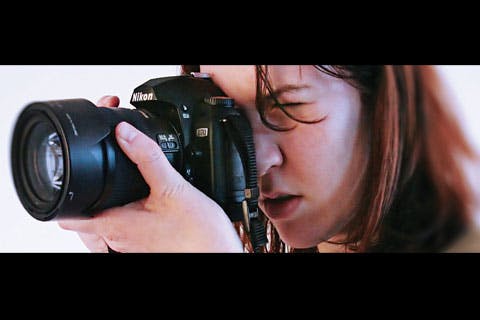

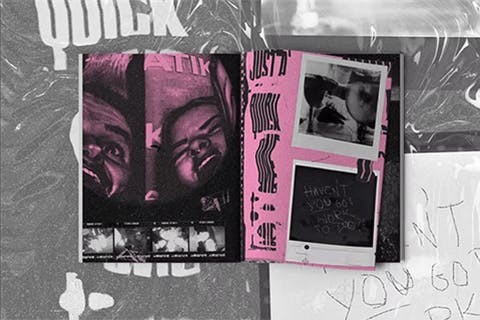
Our visual communication degrees are housed in the state of the art £62 million Parkside Building, part of our City Centre Campus.
We offer extensive studio and workshop space and cutting-edge equipment such as Vicon 3D (an external tracking motion capture facility) and Gypsy (an exoskeleton-based motion capture system). Both of these systems extend the possibility for production of 3D animation and films.
We offer cutting-edge provision such as digital print centres and Sonny Ross became the first student on the Visual Communication course to master the art of the RISO machine. He has since used this to produce many successful RISO publications including “Rojo & Baxter” which has been a success at various zine and book fairs across the country.
The Parkside Building also offers:
- exhibition space
- digital and analogue photographic facilities and studios
- dark rooms
Margaret Street campus
During your Foundation Year you will be based at our Margaret Street Campus - an impressive purpose built Grade 1 listed building. From industry-standard machinery in metal, wood and print, to our studio spaces and media suite, everything you need will be at your fingertips from day one. See our facilities
We have fantastic letterpress and screen printing facilities and typographic archives as part of our facilities. We offer book-binding and printing techniques as part of the course. Students also have access to 3D printing and wood workshop facilities within the building.
Students from Graphic Communication also have the opportunity to use letterpress and printing in the Winterbourne Press with lecturer Rebecca Howson.
Our staff
Jo Newman
Foundation Course Director and BA course leader
Jo chose a career in education so that she could provide students with learning environments where conversations, ideas and materials can be selected, combined, analysed and shared, offering them a way of socializing, caring and questioning to grow their learning with meaning for their futures.
More about JoJoe Miles
Course Leader BA (Hons) Photography
Specialising in commercial and editorial photography for national and international clients, Joe currently leads the BA (Hons) Photography and BA (Hons) Fashion Imaging courses. Experienced in both film and digital photography he has worked with RED cameras, combining moving and still imagery. His extensive list of clients include:...
More about JoeChristopher Morris
Senior Lecturer and Course Leader in Digital Marketing
After graduating from Northumbria University, Newcastle in BA (Hons) Advertising & Graphic Design, Christopher Morris was employed as an Art Director for several London agencies; Lowe Howard-Spink/Horseman Cooke, The Unknown Partnership & D4.
More about ChristopherProfessor Andrew Kulman
Professor of Arts and Design
Award winning Illustrator with 30 years of industry engagement. Research areas include the development of autographic print processes in contemporary graphic art practice. Andrew Kulman has taught across all three years of the undergraduate course in Illustration at BCU, has delivered lectures to several postgraduate courses and has...
More about AndrewGeorge Hart
Deputy Head of Digital Arts
George Hart was the first member of my family to go to University, which has given him an understanding of the challenges students face when going to Universities. After the completion of his degree George worked within the creative industries for seventeen years as a Freelance Illustrator/ Designer, mainly working in London, but also nationally....
More about GeorgeNathan Tromans
Head of Birmingham Institute of Creative Arts
Nathan Tromans background as a Photographer, with an interest in contemporary art and music, provides the backbone to his role in encouraging interdisciplinary practice. Managing some 600 students across the UK, Hong Kong and Thailand, Nathan is committed to ensuring courses have vocational relevance and is active in developing a number of links...
More about NathanDavid Osbaldestin
Interim Course Leader for BA (Hons) Fine Art and Course Leader for BA (Hons) Art and Design
David Osbaldestin is the Interim Course Leader for BA (Hons) Fine Art and Course Leader for BA (Hons) Art and Design based at our School of Art. A Creative Director with a passion for typography, David Osbaldestin is using his fine art and design skills to teach the complex art form of the printed letter. He has a wide ranging role at Birmingham...
More about DavidJane Watts
Course Director of BA (Hons) Art Business (Level 6 Top-Up)
Jane is an interdisciplinary practitioner, and began her career in textile design. She has since worked as National Craft Advisor for the Women’s Institute in the charity sector, and has 20 years’ experience of teaching in higher education across a range of creative programmes. Alongside running the BA Art Business programme, Jane is also...
More about Jane